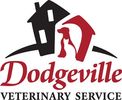Library
-
Wild Quaker parrots eat a variety of seeds, nuts, fruits, berries and vegetation such as leaf buds and blossoms. Some eat insects and their larva. They also like to raid farmers' crops. Like other birds, Quaker parrots need to eat a balanced diet to stay healthy. Quaker parrots are prone to obesity and high cholesterol issues.
-
Senegal parrots consume a variety of seeds, nuts, fruits, berries, and some vegetation in the wild. Occasionally, wild Senegal parrots will feed on grain crops. As with all other animals, Senegal parrots need a proper balance of carbohydrates, proteins, fat, vitamins, minerals, and water. Pellets are the ideal base diet for most pet birds.
-
Summary: Finches are small, active birds belonging to the order of Passeriformes, also known as songbirds. Finches have a variety of feather colours and patterns, and a variety of chirping vocalizations. These petite birds are robust, easy to care for, and demand little attention.
-
Hand-raised babies usually make better pets, as they have been completely socialized with humans. Hand-feeding is a job best left for the experienced bird breeder or aviculturist. If you are considering hand-feeding a baby bird, you should contact your local bird breeder or avian veterinarian for help. This article provides general guidelines and best practices.
-
Chickens are fun, playful, friendly small pets, and they can be very enjoyable both in an outdoor or indoor environment. Like all small pets, chickens require the proper diet, protection from predators, and room to move around. This handout discusses general housing, nutrition, and health care for chickens.
-
Home renovation can be arduous for every member of the household. Awareness of possible construction site problems will help homeowners avoid pet-related issues. A little planning can make the renovation process run more smoothly everyone.
-
Birds are naturally mischievous and if not properly supervised, will get into many predicaments. It is crucial that you bird proof your home. The bird's cage is its house and the confines of your home represent the bird's environment.
-
In general, the bigger the cage, the better. This article provides recommendations on the best cage for your bird, including size, shape, material, and safety concerns. Preferred perches, feeding dishes, and toys are also addressed in depth.
-
In general, the bigger the cage, the better. This article provides recommendations on the best cage for your bird, including size, shape, material, and safety concerns. Preferred perches, feeding dishes, and toys are also addressed in depth.
-
Lead is a common household hazard for birds. Due to their curious, explorative nature, house birds can be exposed to lead around the house. Lead causes heavy metal toxicity, affecting the blood, nervous system, and gastrointestinal system. Lead poisoning can be fatal if not treated.
